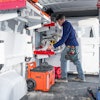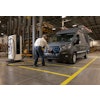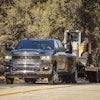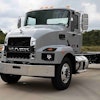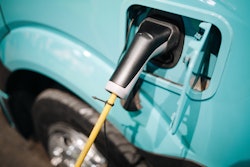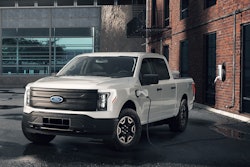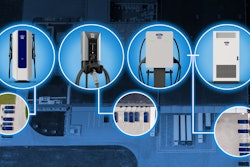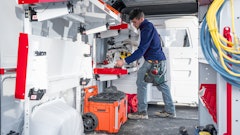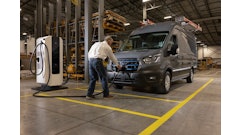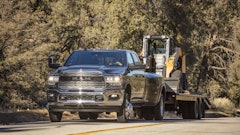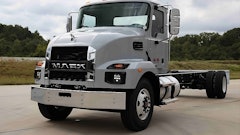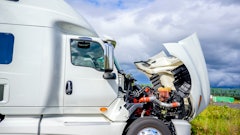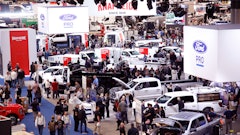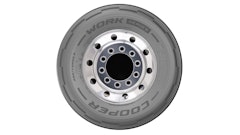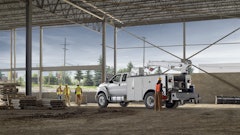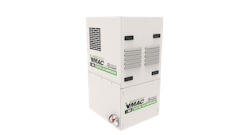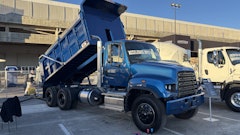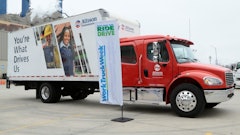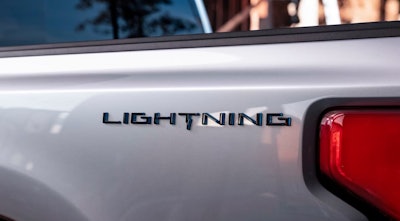
Several news outlets have reported that Ford has halted production and shipments of its electric F-150 Lightning truck because of potential battery issues. The news was based on an interview Motor Authority conducted with Ford spokesperson Emma Berg, however the exact cause of the halt was not given. According to Motor Authority, "a stop-build and an in-transit stop-ship order have been issued for the F-150 Lightning due to a potential battery issue."
This week, Ford announced plans for a battery plant in Michigan and talked about how the battery chemistry can benefit users.
The company's main takeaways included:
- Ford is the first automaker to commit to build both nickel cobalt manganese (NCM) and lithium iron phosphate (LFP) batteries in the U.S., helping America’s No. 2 EV company in 2022 bring EVs to more customers and diversify its U.S. supply chain.
- Ford is investing $3.5 billion to build an LFP battery plant in Marshall, Michigan; this wholly owned subsidiary is part of Ford’s $50 billion+ global push to lead the EV revolution. Initial production slated for 2026 with 2,500 employees to start.
- Adding LFP batteries to Ford’s EV lineup this year – starting with Mustang Mach-E – and backing a U.S. LFP battery plant are key parts of the company’s Ford+ plan; this helps Ford scale more quickly, making EVs more accessible and affordable for customers.
- LFP batteries are exceptionally durable using fewer high-demand, high-cost materials and will help power a variety of Ford’s next-generation of EV passenger vehicles and pickups; new LFP plant will add approximately 35 gigawatt hours (GWh) of LFP battery capacity.
- Ford and its battery tech collaborators have announced $17.6 billion in investment in EV and battery production in the United States since 2019, leading to more than 18,000 direct jobs in the U.S. and more than 100,000 indirect jobs.
According to Ford, the company is investing $3.5 billion to build the country’s first automaker-backed LFP battery plant, offering customers a second battery technology within Ford’s EV lineup.
This plant, called BlueOval Battery Park Michigan, initially will employ 2,500 people when production of LFP batteries begins in 2026. Ford will have the option to further grow its battery capacity at its Marshall, Michigan, plant, which will be part of a wholly owned Ford subsidiary.
With this $3.5 billion investment, Ford and its battery tech collaborators have announced $17.6 billion in investments in electric vehicle and battery production in the United States since 2019, as part of the company’s commitment to invest over $50 billion in electric vehicles globally through 2026. In the next three years, these investments will lead to more than 18,000 direct jobs in Michigan, Kentucky, Tennessee, Ohio and Missouri and more than 100,000 indirect jobs, according to the methodology from a 2020 independent study.
“We are committed to leading the electric vehicle revolution in America, and that means investing in the technology and jobs that will keep us on the cutting edge of this global transformation in our industry,” said Bill Ford, Ford executive chair. “I am also proud that we chose our home state of Michigan for this critical battery production hub.”
Diversifying and localizing Ford’s battery supply chain in the countries where it builds EVs will improve availability and affordability for customers while strengthening consumer demand. Ford is working to deliver an annual run rate of 600,000 electric vehicles globally by the end of this year and 2 million globally by the end of 2026 as part of its Ford+ plan.
As the company rapidly scales EV production, introducing LFP batteries allows Ford to produce more electric vehicles and offer more choices to new EV customers, and helps support the company’s goal of an 8 percent EBIT margin for Model e by 2026.
Read more here.

